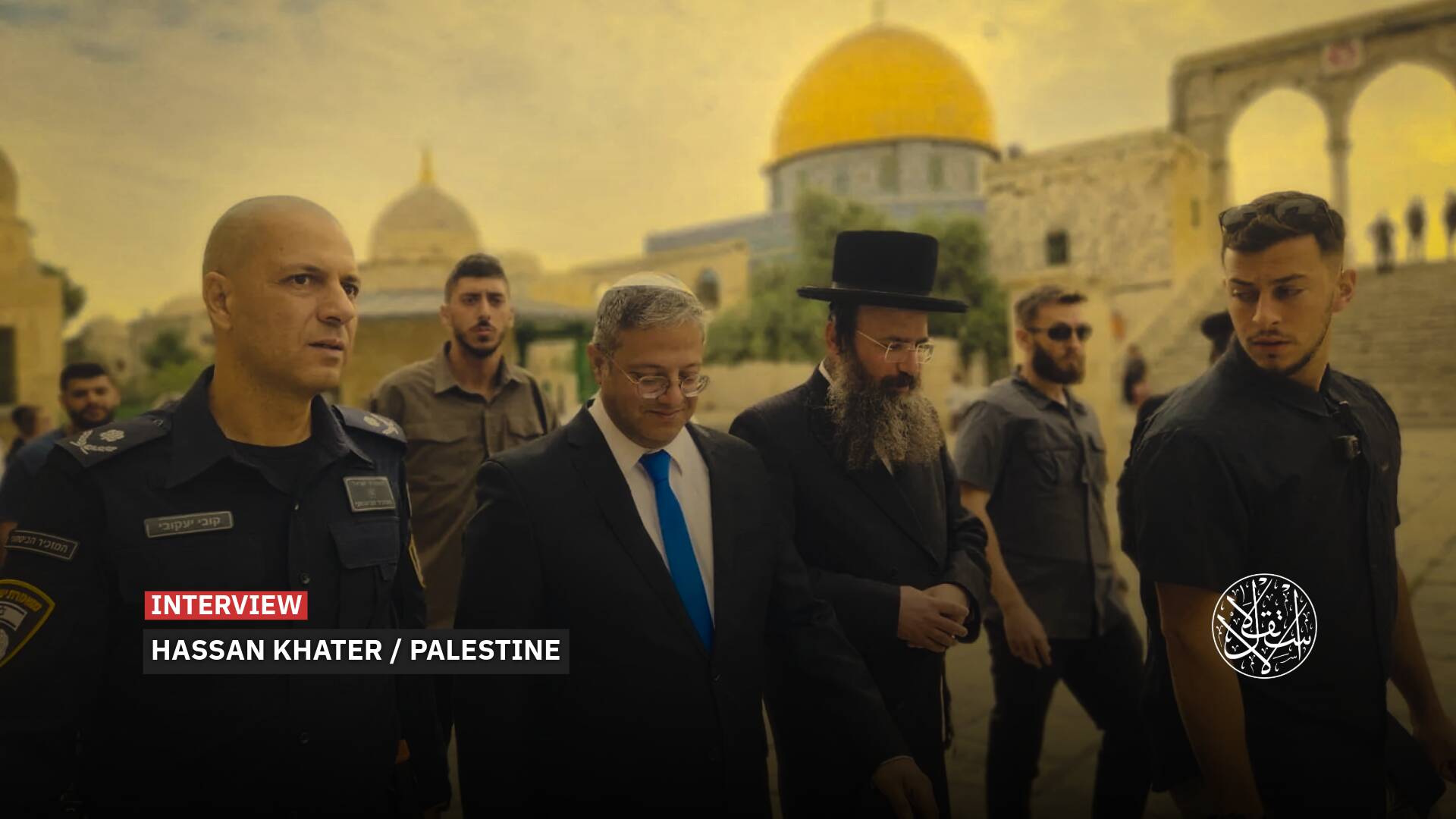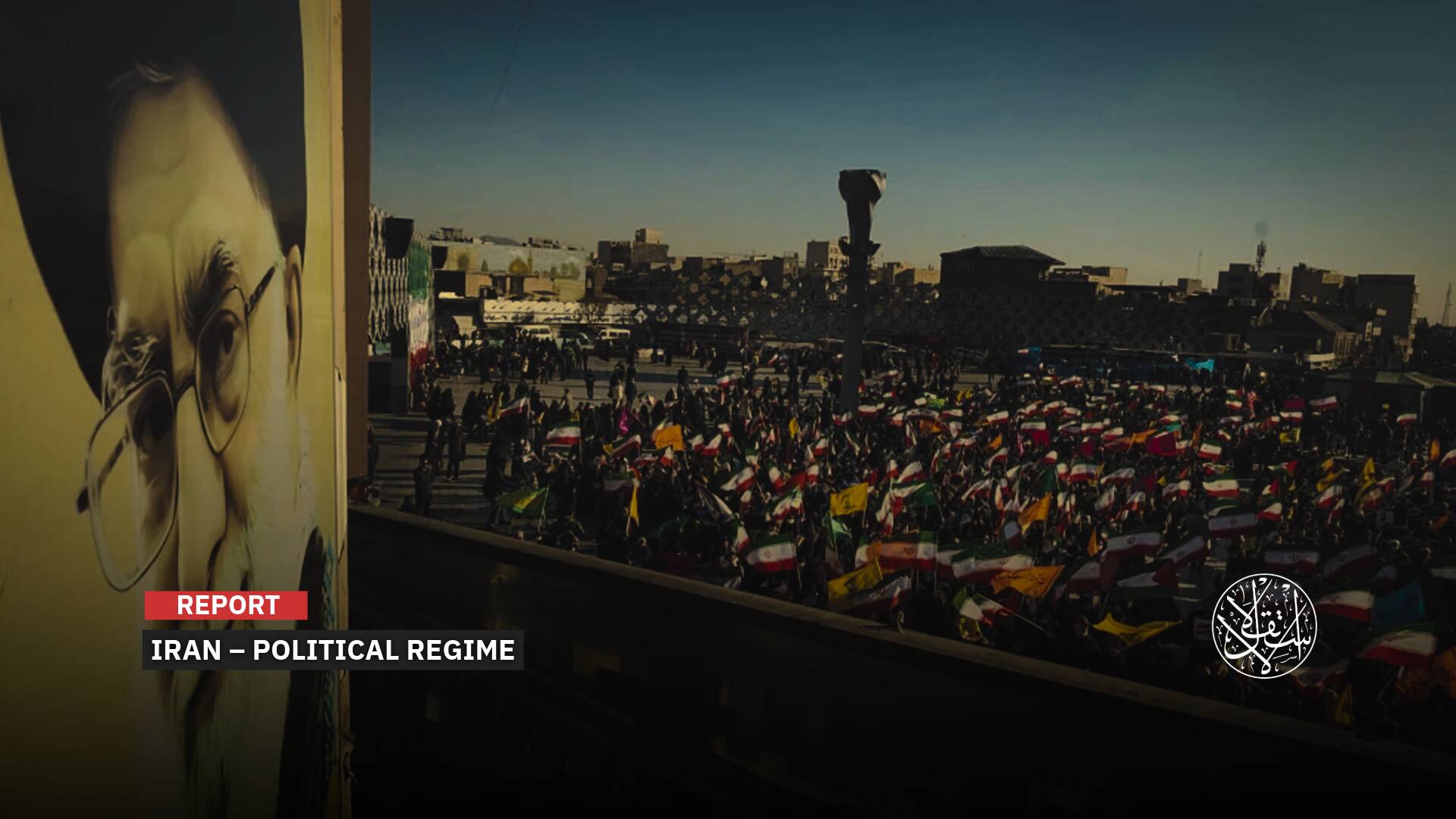Banning UNRWA, Restricting Aid: Israeli Occupation’s New Tactic for Displacement

The Israeli Occupation authorities see anyone advocating for international law as opposing them.
As part of its efforts to block and dry up all sources of aid for Palestinians, “Israel” plans to introduce new regulations that will severely restrict the work of humanitarian organizations in the occupied Palestinian territories.
These measures include visa restrictions, tighter registration requirements for relief organizations, and scrutiny of whether they or their staff have ever supported calls to boycott “Israel.”
The Washington Post cited sources saying that these new Israeli regulations are part of a broader push to shrink the operational space for humanitarian organizations.
What’s Changing?
The Israeli Occupation’s so-called Ministry of Diaspora Affairs announced that the 170 international NGOs registered in “Israel” have just six months to reapply under the new system—or face deregistration—with only seven days to appeal.
The ministry published a list of required documents and information for registration, including the names, contact details, and passport numbers of all foreign staff, as well as those of their partners or children.
It also demanded detailed reports on donors, funding sources, and records of cooperation with international and local organizations, including UN agencies.
Among the affected groups is Oxfam, a UK-based confederation of 15 independent organizations fighting poverty and social inequality worldwide. Oxfam has played a key role in documenting Israeli violations of human rights, land appropriation, and the erasure of Palestinian identity while also providing aid to Palestinian refugees.
Despite not calling for a boycott of “Israel” or settlement products, Oxfam is still labeled as “anti-Israel” in several Western countries, including Canada.
Another targeted organization is Doctors Without Borders (Medecins Sans Frontieres, MSF), which has been vocal in condemning Israeli crimes. It recently urged “Israel” to end its assault on Gaza, lift restrictions on food supplies, and refrain from further escalation.
“We are horrified by the attacks launched by Israel today on the people of Gaza, shattering the nearly two-month-old ceasefire. Out of the hundreds killed, according to the Ministry of Health, MSF received 75 dead on arrival and scores of wounded in just three of the facilities we support,” said MSF General Director Claire Magone.
“Our staff were completely taken by surprise and found themselves once again having to deal with influxes of mass casualties, many of whom were children.”

“For over 15 months, before the ceasefire, people in Gaza were indiscriminately killed, mutilated, wounded, and displaced,” she added.
“Israeli forces undertaking these latest ruthless attacks and evacuation orders make us fear that a new phase of military operations in Gaza is about to begin.”
Palestinians in Gaza will simply not be able to withstand this, neither physically nor mentally. Their hopes of recovering at least part of their previous lives are being shattered,” according to Magone.
Among the organizations “Israel” has ordered to review their licenses is the Norwegian Refugee Council (NRC), a humanitarian group headquartered in Oslo. It was founded after World War II to aid Europe before expanding globally to provide relief in more than 40 countries, making it one of the world’s largest humanitarian organizations.
Following Donald Trump’s inauguration and the start of his second term in 2025, he signed an executive order halting development aid to multiple nations and entities. As a result, the NRC was forced to suspend its humanitarian operations in about 20 countries for the first time in its history.
The NRC provides life-saving assistance to refugees in the West Bank and Gaza. In previous statements, it acknowledged facing significant challenges and immense obstacles in delivering aid due to blocked U.S. assistance and Israeli pressure.
These three examples illustrate the types of organizations “Israel” is seeking to shut down in Palestinian territories—targeting any institution that helps alleviate Palestinians' difficult living conditions.
The Israeli Occupation’s latest move follows its January decision to suspend the operations of the United Nations Relief and Works Agency for Palestine Refugees (UNRWA) in the occupied territories. This came after a law passed in October 2024 that banned the agency’s activities in the West Bank and Gaza.
“Israel” halted all UNRWA services and activities in occupied Jerusalem and evacuated its offices in full compliance with two laws approved by the Knesset (Israeli parliament).
The first law prohibits UNRWA operations in areas under “Israeli sovereignty,” barring it from running offices or providing services. The second law forbids any engagement with the agency.
For over seven decades, UNRWA has provided essential services such as education, healthcare, and humanitarian aid to nearly six million Palestinian refugees in Gaza, the West Bank, Lebanon, Jordan, and Syria.
Flimsy Justifications
In justifying its latest crackdown on NGOs that have operated in the occupied territories for decades, Israeli authorities claimed that tightening control over aid organizations would ensure relief efforts were conducted in a manner "consistent with Israel’s interests."
Israeli Minister of Diaspora Affairs Amichai Chikli stated that the new system aims to prevent humanitarian work from being exploited to undermine the state.
Chikli’s ministry oversees the process and leads a newly established committee responsible for approving or rejecting applications. This committee comprises representatives from various government bodies, including intelligence and security agencies—many of which have no direct dealings with humanitarian organizations or aid efforts.
“This is not a committee that understands, even slightly, anything about Israeli humanitarian obligations under international law,” Michael Sfard, a Tel Aviv-based human rights lawyer, told The Washington Post.
Other legal experts noted that Israeli authorities see anyone advocating for adherence to international law as hostile.
“It’s even worse than we anticipated,” a senior aid worker in the region said of the new guidelines. “This is one of the most concerning moments that we, as humanitarian organizations, have experienced in a long time.”
“It’s a dangerous time for Gaza, but it also sets a dangerous precedent worldwide,” he added.
“We all don’t know if we’ll even be here in a few months, and it’s paralyzing,” the aid worker told The Post. “Shall we try everything to stay and serve the most vulnerable people in Gaza? Shall we be principled and refuse to comply? We just don’t know.”
Despite widespread objections from aid organizations, “Israel” has refused to reconsider its stance.
The Israeli Occupation’s Supreme Court dismissed a legal challenge against the new regulations filed by the Association of International Development Agencies (AIDA), a coalition of more than 80 NGOs operating in Palestinian territories.
AIDA argued that the Israeli government's decision to impose these restrictions contradicts Israeli law and violates international humanitarian principles.
Humanitarian organizations warned that the new regulations would undermine their work in the West Bank and Gaza, endanger both local and international staff, and could ultimately force them to cease operations.
They also expressed grave concerns over the Israeli Occupation’s demand to submit the names, contact details, and identification documents of their Palestinian staff. Israeli authorities insist this requirement is necessary to screen employees for potential links to the Resistance.
All attempts to persuade Israeli authorities to allow these organizations to continue operating have failed—just as “Israel” has repeatedly dismissed UNRWA’s explanations since Operation al-Aqsa Flood.

“Israel” accused 12 UNRWA employees of involvement in the October 7 operation carried out by Hamas’s military wing, al-Qassam Brigades, an allegation the agency denied.
The United Nations reaffirmed UNRWA’s neutrality and commitment to its mission, rejecting the Israeli ban and repeatedly urging Tel Aviv to reverse its decision—efforts that were met with refusal. Instead, “Israel” persisted in its ban and vilification of the agency with U.S. backing.
The need for UNRWA, the largest international humanitarian organization in the region, grew significantly as “Israel” waged a U.S.-supported war of genocide against Gaza for over 15 months.
This crackdown on humanitarian aid comes as “Israel” continues to seal Gaza’s crossings, blocking the entry of relief supplies.
In early March 2025, the first phase of the Gaza ceasefire agreement ended after 42 days. However, the Israeli Occupation reneged on commitments to proceed to the second phase and bring the war to an end.
With the ceasefire phase concluded, “Israel” once again shut all crossings into Gaza to prevent humanitarian aid from entering—an attempt to use starvation as leverage to force Hamas into submission.
Goals and Motives
Commenting on the humanitarian situation and the impact of the Israeli Occupation’s latest measures, Mohammad Imad, Director of Legal Affairs and Policies at Skyline International for Human Rights, said before the war, 80 to 90 percent of Palestinians in Gaza relied on UNRWA assistance.
“Fifteen years of Israeli blockade pushed unemployment past 65% and hunger over 50% in Gaza. Imagine what it's like now,” he told Al-Estiklal.
“Israel's long-standing strategy has been to slowly starve Gaza and strangle all aspects of life, leaving its people entirely reliant on aid by cutting off trade and employment opportunities.”
Imad pointed to the early years of the blockade in 2006, when Israeli authorities barred the entry of construction materials and carpentry supplies—moves designed to deepen Gaza’s humanitarian catastrophe.

By 2016, and with the arrival of U.S. President Donald Trump, UNRWA began facing increasing restrictions, including funding cuts that forced it to terminate contracts for thousands of temporary employees in Gaza due to financial constraints.
Following the outbreak of the latest war—marked by genocide, infrastructure destruction, and the closure of relief organizations, many of which relocated to southern Gaza with severely limited operations—the situation has deteriorated even further.
The legal expert noted that international organizations are now being systematically undermined, as pressure on UNRWA intensifies and multiple countries have halted their funding since the war began.
Regarding the Israeli Occupation’s objectives, he said, “The dismantling of UN institutions can only be understood as an attempt to further restrict Palestinians in every aspect of life.”
“This move serves as a prelude to forcing Palestinians into migration, as they are continually deprived of basic necessities, including food, water, clothing, and shelter.”
The Palestinian Ministry of Foreign Affairs highlighted additional motives, stating in a press release that “Israel’s crackdown on humanitarian organizations aims to limit our monitoring and documentation of crimes and violations committed by Israeli forces and settlers against Palestinian civilians.”
“These severe measures are part of Israel’s strategy to isolate the Palestinian people, conceal its grave breaches of international law and the Geneva Conventions, and erase evidence as part of a broader effort to suppress the truth.”
Regarding the necessary response to these Israeli measures, legal expert Mohammed Imad called for the creation of a protective Arab-Islamic shield to support the Palestinian people, reducing their dependence on UNRWA and other relief organizations facing increasing restrictions. He noted that Arab support remains minimal, if not entirely absent.
“While UNRWA is an essential UN agency dedicated to refugee rights and holds political significance, an alternative must be in place to sustain Palestinians if funding is cut due to political decisions, ensuring they remain on their land.”
“The Palestinian faces death with an empty stomach and no international protection, as he is systematically deprived of all means of survival,” he added.
For years, extremist Israeli ministers have advocated for the displacement of Gaza’s residents and the reconstruction of settlements dismantled in 2005.
The closure and banning of UNRWA and other relief organizations facilitate this agenda by halting humanitarian aid to nearly 1.9 million refugees, obstructing reconstruction efforts, and pushing residents toward forced migration.
“Israel” attempted to implement this plan during its assault on Gaza by displacing northern residents to the south, cutting aid, and fostering starvation. However, Palestinian resilience thwarted these efforts.
This agenda has resurfaced with Donald Trump’s return to the White House, alongside his calls for Egypt and Jordan to accept large numbers of Palestinians from Gaza.
Trump justified his proposal by claiming that Gaza had become uninhabitable due to Israeli destruction—a stance firmly rejected by both Egypt and Jordan.
The crackdown on UNRWA and humanitarian groups comes as “Israel” pushes to annex the West Bank under Trump’s administration, part of a broader strategy to dismantle the two-state solution and erase Palestinian refugee rights for good.








